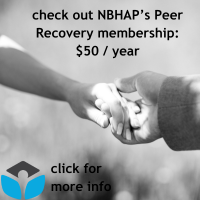Advocacy Alert: South Carolina SB 962 and New York AB 10870
May 31, 2018
South Carolina SB 962: Licensure for Addiction Counselors
South Carolina is considering a bill that would create mandatory licensure for addiction counselors. Previously, the state allowed individuals to represent themselves as "addiction counselors" if they were certified by the South Carolina Association of Alcoholism and Drug Abuse Counselors Certification Commission, the National Association of Alcoholism and Drug Abuse Counselors Certification Commission, or comparable certification issued through an international Certification Reciprocity Consortium/Alcohol and Other Drug Abuse approved certification board or through a certification board that has been approved by the South Carolina Association of Alcoholism and Drug Abuse Counselors Certification Commission.
The new law would create formal licensure requirements for addiction treatment counselors, and require that a candidate obtain a master's degree or other higher degree program from an accredited institution to qualify. Individuals would be guilty of practicing without a license if the they represent themselves to be an addiction counselor by the use of any title or description of services that incorporates the words "addiction counselor" without being licensed by the South Carolina Board of Licensed Professional Counselors.
South Carolina Senate Bill 962 was authored by Senator Thomas Alexander and is currently residing in the House for consideration. A companion bill, HB 4601, designed to amend the codes to remove provisions concerning certain addiction counselors, was signed by the Governor on May 18, 2018, although the Code has not yet been updated.
While BHAP supports states' efforts to regulate addiction counselors, mandatory requirements cannot be so onerous that they will decrease the availability of substance use treatment resources or make the operation of a substance use treatment services cost-prohibitive for operators and patients. BHAP supports the present requirements that an addiction counselor be certified by the South Carolina Association of Alcoholism and Drug Abuse Counselors Certification Commission, the National Association of Alcoholism and Drug Abuse Counselors Certification Commission, or comparable certification issued through an international Certification Reciprocity Consortium/Alcohol and Other Drug Abuse approved certification board or through a certification board that has been approved by the South Carolina Association of Alcoholism and Drug Abuse Counselors Certification Commission.
South Carolina SB 962, as currently written, is ill-informed in the impact the measure would have on substance use treatment for the community, and is overreaching in its mandatory requirements of a master’s degree or a higher level degree program from an accredited institution to qualify to be labeled an addiction counselor. BHAP urges those in South Carolina to contact Governor Henry McMaster to veto this bill.
New York AB 10870: Certification of Sober Living Homes
New York's State Assembly is considering a bill that would require the certification of sober living homes that operate in the state. The bill, AB 10870, which was introduced last week, calls for all "sober living homes" (which includes halfway houses and recovery homes) to be certified with the New York State Office of Alcoholism and Substance Abuse Services (the "OASAS"). Failure to obtain such certification could result in fines of $10,000, while violations of the proposed regulations or existing applicable laws could result in fines up to $5,000.
According to the first draft of the legislation, which may undergo extensive revisions, the OASAS itself would handle certification process itself, rather than designating an outside agency to oversee the process. The OASAS would promulgate the rules and regulations, impose a certification fee, and coordinate on-site inspections for certification. Among the rules being proposed by the legislature are that certified sober living homes would need to operate in accordance with federal, state, and local laws (including the Federal Fair Housing Act), enforce a zero tolerance policy for alcoholism and substance abuse, and be operated or managed by people with at least two years' employment experience with people with substance abuse disorders and no prior felony convictions.
However, the legislation also calls for sober living homes to meet the following requirements: (1) be affiliated with a treatment program approved by the OASAS and (2) have an OASAS certified abuse counselor on staff who follows each individual's aftercare plan as well as assists each individual, as needed, in furthering their education, acquiring job training, and securing employment so they can transition out of the sober living home. These requirements may be burdensome for many sober living operators.
While BHAP supports states' efforts to regulate sober living and recovery residences, mandatory requirements cannot be so onerous that they will decrease the availability of these importance resources or make the operation of a certified sober living house cost-prohibitive for operators and residents. BHAP believes that state legislatures should work with local stakeholders and sober living organizations in crafting the regulations for sober living facilities in their state, and pay careful attention to the financial impacts of their proposed regulations. AB 10870, as currently written, is overreaching in its mandatory requirements and should be revised before being implemented.
BHAP urges those in New York to contact Assemblyman Douglas Smith to express your concerns about these mandatory certification requirements.
For more information on the current laws governing treatment programs and sober living facilities in New York, please visit our Frequently Asked Questions for the state.

A national membership association that provides education and advocacy for those in the behavioral health and addiction treatment industries.
We are the leading and unifying voice of addiction-focused treatment programs.



